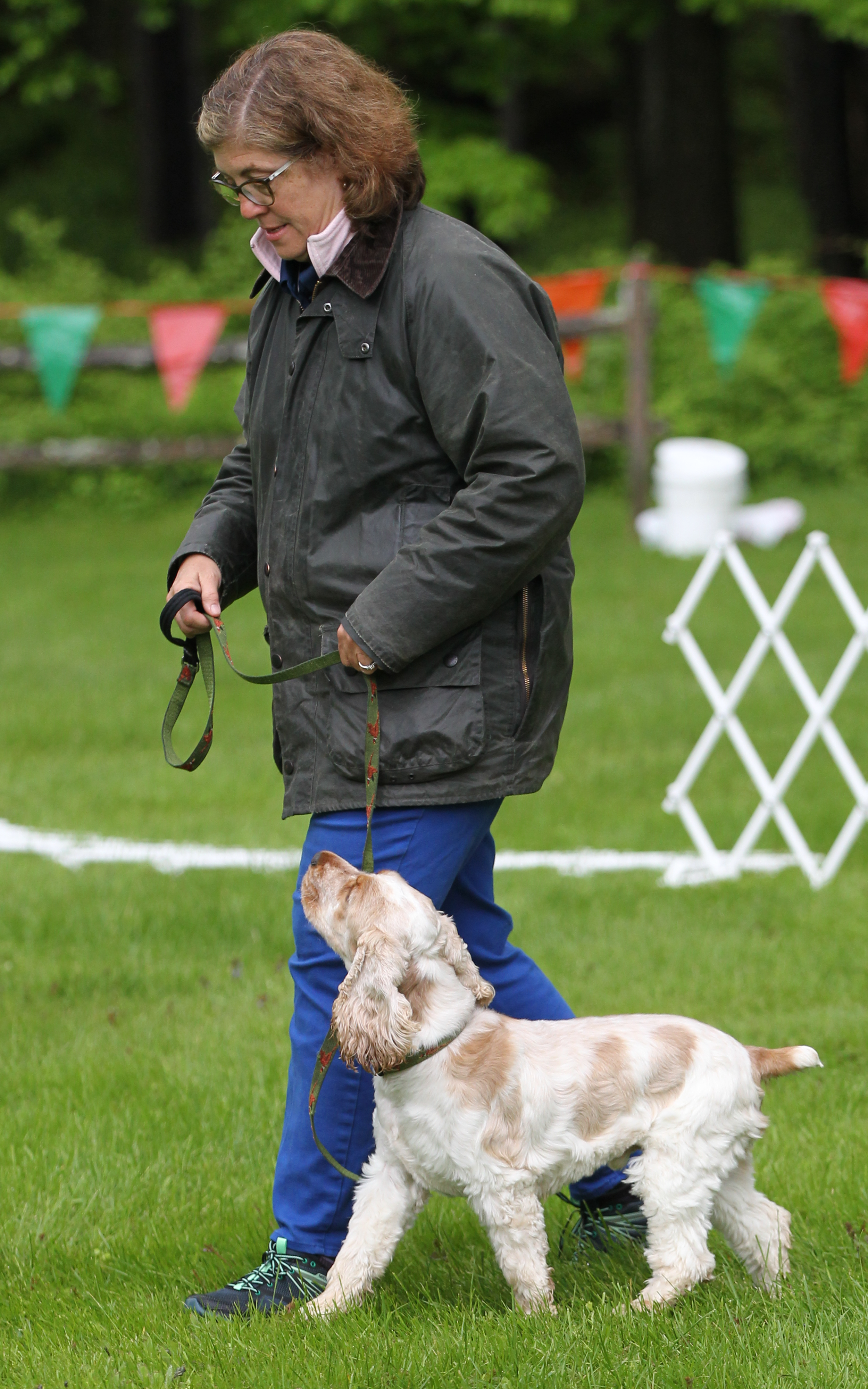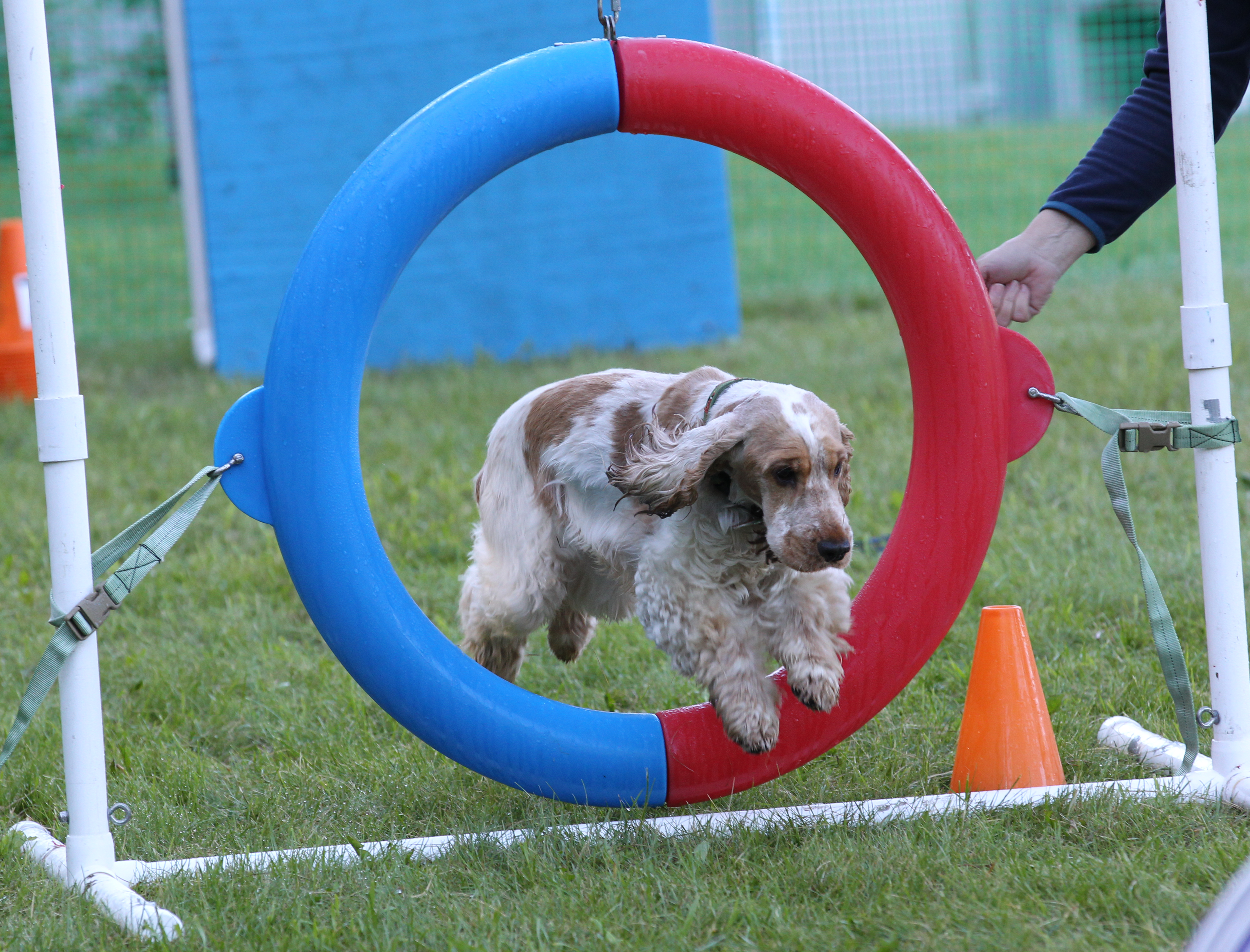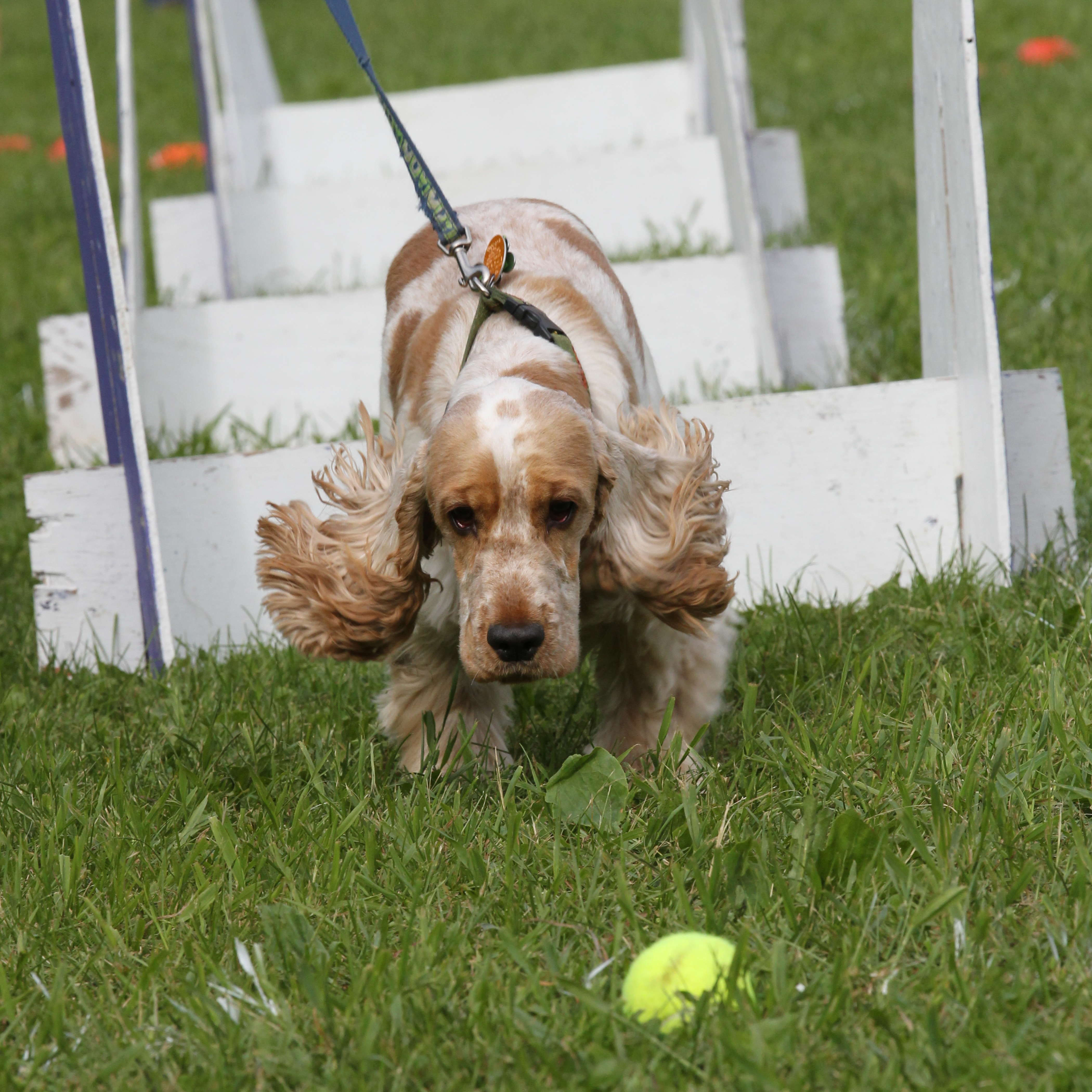Heel, sit, stay
I decided to increase my commitment to competitive dog obedience training in the middle of the COVID-19 pandemic. My life as a biological scientist had been upended by the virus. The pace of work in the laboratory had slowed due to physical distancing protocols; I wasn’t even supposed to be there. Why not take this opportunity to intensify my dog training?

I train Webster, my 4-year-old orange roan English cocker spaniel. As you might suspect, he was named by his breeders at Ashbrook English Cockers after Webster’s Dictionary. The pups in each litter all have names starting with the same letter, and he was in the “W” litter. His name is all the more fitting because Noah Webster was a Yalie (class of 1778), and I am a professor at Yale. Webster (the dog) is athletic, food motivated and very attached to me. Thus, he is a delight to train.
I’ve owned many dogs, but I’m a newbie to any kind of dog showing. In December 2020, by chance, I saw that a competitive dog obedience class taught by Joyce O’Connell at Tails-U-Win had an opening, and I jumped at it. Tails is a large, well-equipped dog training center in Manchester, Connecticut. I knew Joyce was an accomplished obedience trainer of border collies (the geniuses of the dog world). Joyce’s dogs attain Obedience Trial Championship titles, known as OTCHs, which are considered to be Ph.D.s for dogs.
On my first day, I immediately felt that I belonged there; I was welcomed both by Joyce and by my classmates, almost all of whom had very deep dog showing experience. I had lost my scientific peers to Zoom but had gained classmates who aim to show their dogs in obedience — all kinds of dogs, including other sporting breeds and some mixed breeds as well as one dog who is deaf. Of course, the humans in our weekly classes followed all masking and social distancing requirements.

Between classes, Webster and I worked daily for short periods on skills such as heeling on and off leash, coming when called (the recall), and a one-minute stay with Webster both sitting and lying down, which is tricky with distractions. We continue to work on higher-level skills such as fetching a dumbbell on the flat and over a jump. Picking up a wooden dumbbell was a particular challenge for Webster, and we struggled with it. He did not want to hold the dumbbell in his mouth at all, let alone run out, pick it up and run back with it. Just when I was ready to quit, he started to pick the dumbbell up off the ground. I started to cry, relieved of my frustration and so proud of him for learning this difficult skill and for trusting me. Now he loves his dumbbell and wags his tail and jumps up when I bring it out for training.
In July, Webster got his American Kennel Club Companion Dog obedience title in three trials (he won a second and two firsts). We won the title at the Eastern States Exposition Grounds in Springfield, Massachusetts, during a very large and noisy dog show. There were copious distractions. The place was filled with lots of other dogs and people; Champagne corks popped and hands clapped at just the wrong moments during the sits and stays. I was so proud that Webster trusted me enough to maintain his composure in the ring despite the chaos around us. Of course, afterward, he got lots of treats.

The COVID-19 pandemic has given Webster and me the opportunity to grow as a team in competitive dog obedience. While I am pleased with our accomplishments, working with a partner who has four legs and a waggy tail and routinely keeps his nose to the ground is teaching me humility. It’s completely different from working in the lab — except that I’ve found positive reinforcement drives success in both settings.
There’s a bond between humans and dogs that I feel acutely when I am working to help Webster learn obedience skills, a bond that goes back tens of thousands of years to the first domesticated canine. It has connected me to a new community during a worldwide pandemic — and to all the people who have loved their dogs throughout time.
(With thanks Robi Tatkin at ABC Obedience for getting me started in dog obedience.)
Enjoy reading ASBMB Today?
Become a member to receive the print edition four times a year and the digital edition monthly.
Learn moreGet the latest from ASBMB Today
Enter your email address, and we’ll send you a weekly email with recent articles, interviews and more.
Latest in Opinions
Opinions highlights or most popular articles

Women’s health cannot leave rare diseases behind
A physician living with lymphangioleiomyomatosis and a basic scientist explain why patient-driven, trial-ready research is essential to turning momentum into meaningful progress.

Making my spicy brain work for me
Researcher Reid Blanchett reflects on her journey navigating mental health struggles through graduate school. She found a new path in bioinformatics, proving that science can be flexible, forgiving and full of second chances.

The tortoise wins: How slowing down saved my Ph.D.
Graduate student Amy Bounds reflects on how slowing down in the lab not only improved her relationship with work but also made her a more productive scientist.

How pediatric cataracts shaped my scientific journey
Undergraduate student Grace Jones shares how she transformed her childhood cataract diagnosis into a scientific purpose. She explores how biochemistry can bring a clearer vision to others, and how personal history can shape discovery.

Debugging my code and teaching with ChatGPT
AI tools like ChatGPT have changed the way an assistant professor teaches and does research. But, he asserts that real growth still comes from struggle, and educators must help students use AI wisely — as scaffolds, not shortcuts.

AI in the lab: The power of smarter questions
An assistant professor discusses AI's evolution from a buzzword to a trusted research partner. It helps streamline reviews, troubleshoot code, save time and spark ideas, but its success relies on combining AI with expertise and critical thinking.

